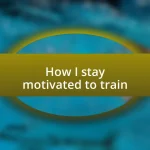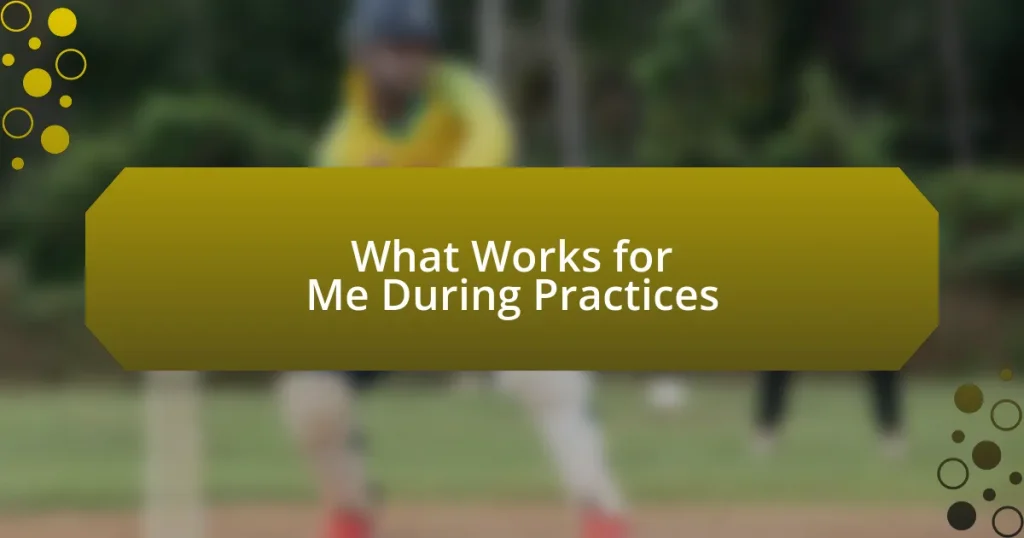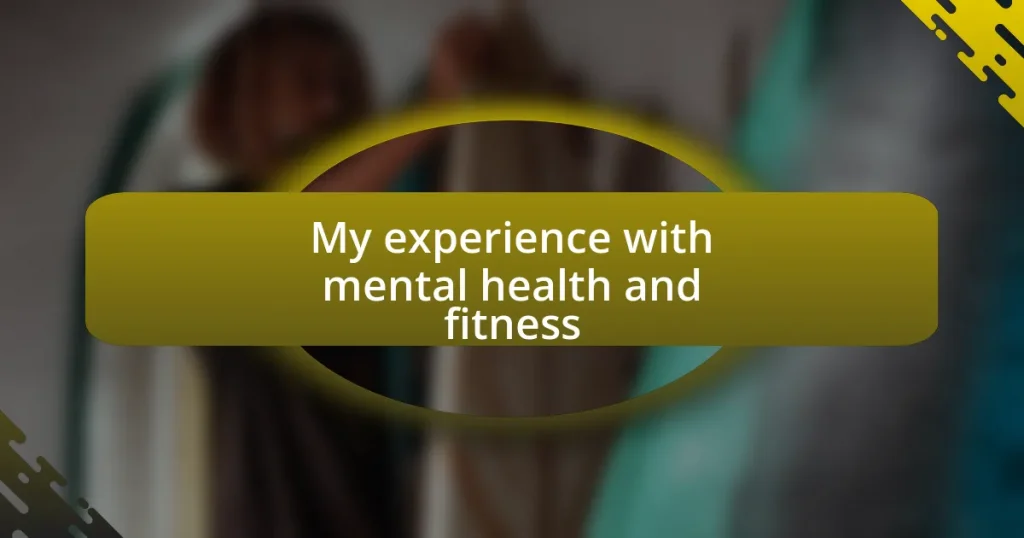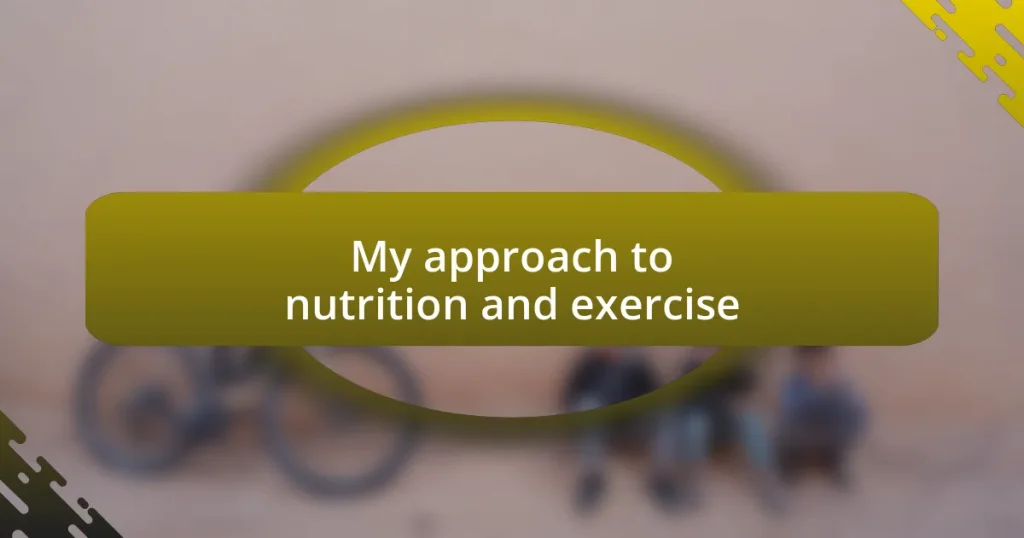Key takeaways:
- Morning solitude enhances focus and sets a positive tone for the day.
- Setting realistic, achievable goals helps maintain motivation and allows for celebrating small victories.
- Reflection and adaptation post-practice improve techniques and foster joy in learning.
- Nutrition and hydration significantly impact energy levels and mental clarity during practice.
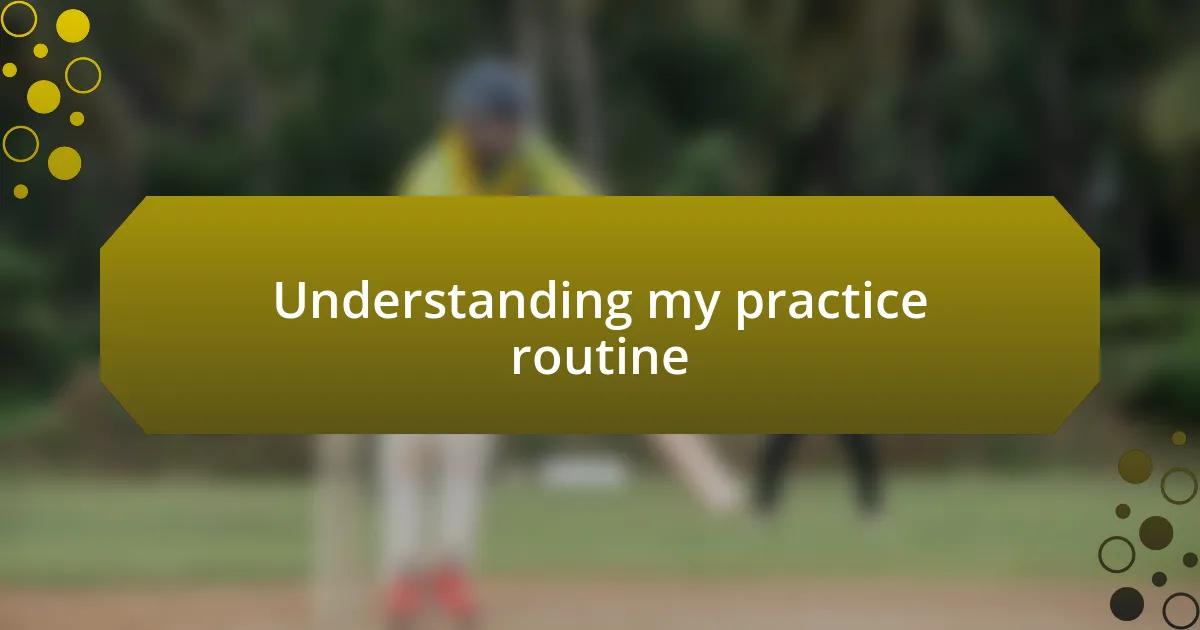
Understanding my practice routine
To truly understand my practice routine, I first had to identify the elements that resonate with me. For instance, I remember the early mornings spent in quiet solitude, where the world feels a bit more peaceful. Did you ever notice how the stillness can enhance focus? That time alone sets the tone for the rest of my day.
Another key aspect of my routine involves setting specific goals. I recall a time when I aimed to master a challenging piece, breaking it down into manageable sections. This not only alleviated the pressure but also allowed me to celebrate small victories along the way. Have you experienced the exhilaration of achieving a milestone, no matter how tiny? These moments fuel my motivation.
Finally, I’ve learned the importance of flexibility in my practice. When I push through fatigue or frustration, it’s often counterproductive. Once, I took a step back during a particularly tough session and simply revised my approach. Have you found that sometimes the best progress comes from shifting tactics? Embracing this adaptability has deepened my understanding of myself and what works best in my practice.
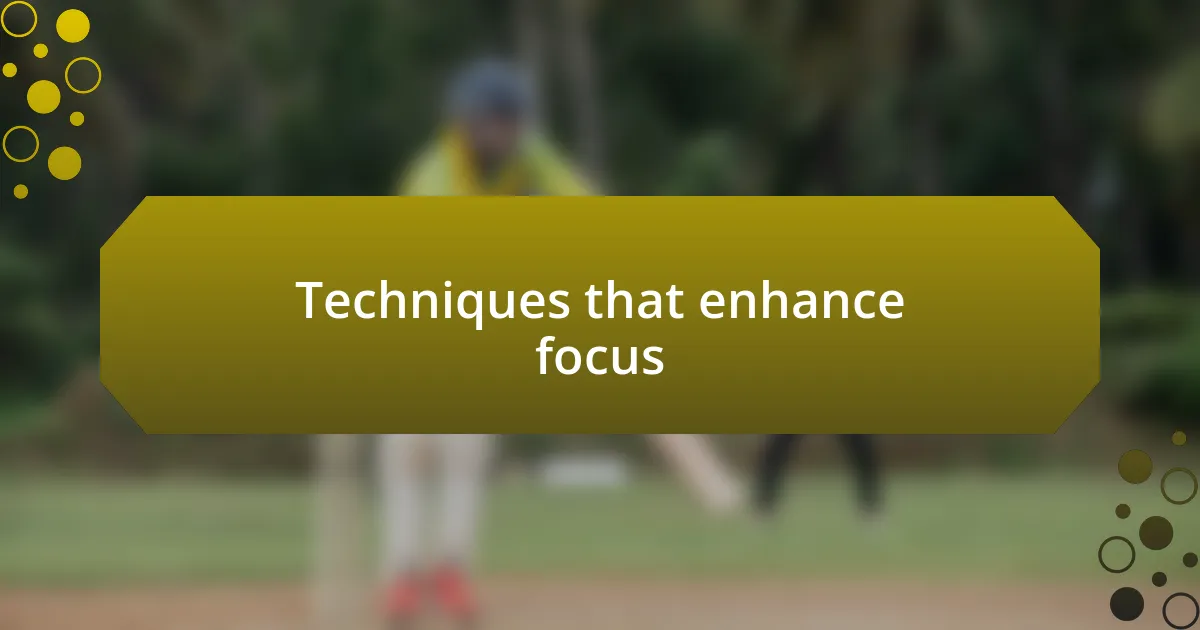
Techniques that enhance focus
Practices that enhance focus have made a significant difference in my routine. I often find that creating a dedicated workspace helps eliminate distractions. I remember setting up an area in my home where everything felt orderly, which automatically sharpened my concentration. It’s amazing how just a clean, organized desk can shift your mindset.
Here are some techniques I’ve found effective for boosting focus:
- Time Blocking: I dedicate specific chunks of time to tasks, which helps me stay on track.
- Mindfulness Exercises: Taking a few minutes to meditate before starting my practice clears my thoughts.
- Pomodoro Technique: I break my practice into intervals, working intensely for 25 minutes and then taking a 5-minute break.
- Background Music: Listening to instrumental music creates a pleasant backdrop that promotes my concentration.
- Hydration and Nutrition: Staying hydrated and snacking on nuts or fruits keeps my energy levels balanced.
I’ve realized that even small adjustments, like sipping water regularly, can lead to extended focus during practice sessions. It’s a simple yet valuable habit that I encourage everyone to consider!
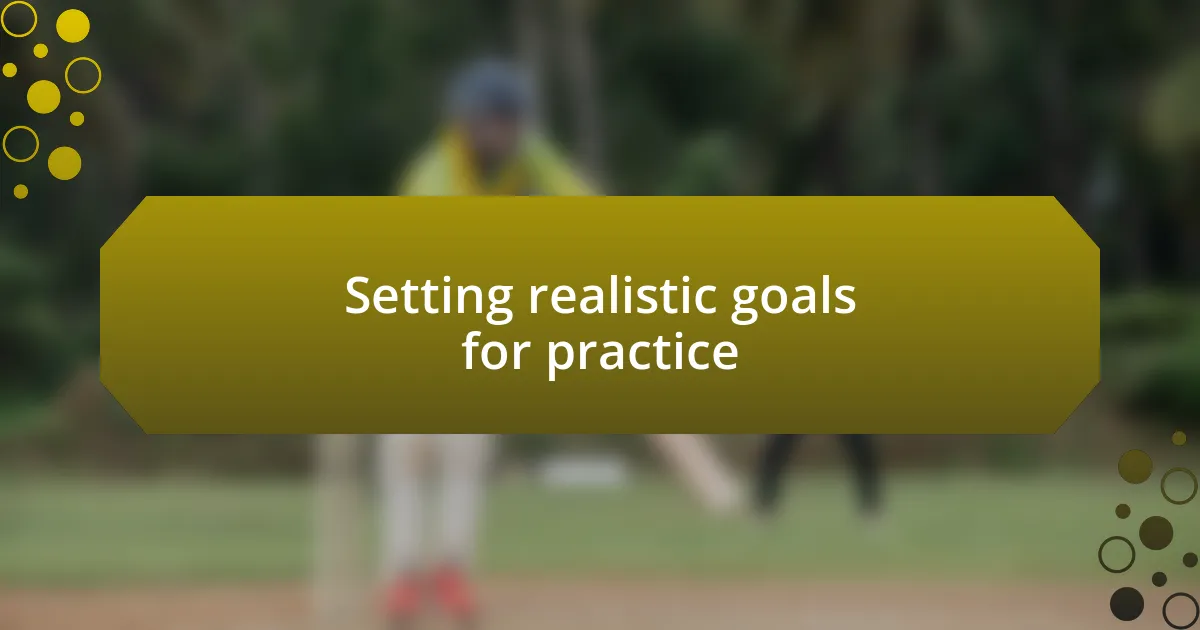
Setting realistic goals for practice
Setting realistic goals for practice is crucial for meaningful progress. I’ve found that when I set achievable objectives, I remain motivated and less overwhelmed. For instance, during my early days of practicing guitar, I aimed to master just one chord per session rather than trying to learn an entire song. This small goal felt attainable, and each success built my confidence.
In my experience, breaking down long-term goals into smaller milestones works wonders. Instead of saying, “I want to run a marathon,” I started with “This week, I’ll jog for 15 minutes without stopping.” Those mini-goals not only made the larger goal seem manageable but also allowed me to celebrate my progress, which kept my enthusiasm high.
I’ve also discovered the importance of being flexible with these goals. Some days, despite my best intentions, I simply don’t have the energy or focus. On those occasions, I learn to adjust my goals, knowing that it’s perfectly okay to take a step back. This shift in perspective has helped me maintain a positive mindset during challenging practice days.
| Goal Type | Example |
|---|---|
| Short-term Goal | Practice one chord |
| Medium-term Goal | Jog for 15 minutes without stopping |
| Long-term Goal | Run a marathon |

Nutrition and hydration for performance
Nutrition plays a pivotal role in enhancing performance, and I’ve seen firsthand how the right foods can boost my energy during practice. For example, I started incorporating a mix of complex carbohydrates and protein into my meals, like oatmeal topped with nuts, which keeps me fueled without that dreaded post-lunch slump. Have you ever noticed how certain foods can make you feel lighter or heavier? I’ve experienced the difference when choosing a salad over a heavy pasta meal before a long practice session.
Hydration is another aspect I can’t overlook. There were days I would forget to drink enough water, and it felt like my focus slipped away. Keeping a water bottle nearby during practice has been a game-changer for me; it serves as a constant reminder to stay hydrated. I often wonder, how many of us truly understand the impact of hydration on our mental clarity? I once spent a whole practice feeling sluggish and uninspired, only to realize I hadn’t touched my water bottle.
When I prepare for intense practice sessions, I’ve found that snacking wisely can make all the difference. I reach for easy-to-digest snacks like bananas or yogurt, which provide a quick energy boost without weighing me down. This choice often leaves me feeling invigorated rather than lethargic, and it sparks my curiosity—what small dietary adjustments could lead to a breakthrough in your performance? Understanding these nuances has transformed my approach to practice, enhancing not just my endurance but also my overall enjoyment.

Maintaining motivation during practices
Maintaining motivation during practices often comes down to setting personal goals. I remember a time when I felt sluggish and uninspired, but I decided to focus on mastering a specific skill. Setting that goal transformed my mindset; suddenly, every practice became a chance to improve, and the progress I made fueled my motivation. Have you ever set a goal that pushed you to dig deeper and work harder?
Another aspect I find crucial is variety in my practice routine. There was a phase where I fell into a monotonous cycle, and my motivation dipped significantly. I began introducing new drills and challenges, and it felt like a breath of fresh air. It made me realize how important it is to keep things exciting—how do you keep your practices engaging?
Finally, I pay attention to my self-talk during practice. Negative thoughts can sneak in, especially during tough drills. I make a conscious effort to replace those thoughts with affirmations and reminders of past successes. One particularly challenging session, I kept repeating to myself, “You’ve got this” after every attempt, and it helped me push through. How often do you check in with your mindset when the going gets tough?

Reflection and adaptation strategies
Reflecting on my practice sessions has been a game-changer for me. After each practice, I take a moment to analyze what worked and what didn’t. For instance, there was a time when I struggled with a particular technique, and by reviewing my performance afterward, I realized I was approaching it all wrong. Have you ever stopped to consider how post-practice reflection could alter your perspective?
Adaptation is another strategy I embrace. I remember taking a crucial step back to adjust my approach to learning a complex skill. Instead of getting frustrated, I shifted my focus to foundational exercises that built my confidence and understanding. I found that by being open to change and patient with myself, I not only improved but also found joy in the learning process. How flexible are you when it comes to altering your practices for better outcomes?
Vulnerability plays an essential role in my reflection process. Acknowledging my weaknesses isn’t easy, yet it’s liberating. For example, after a particularly tough week, I let myself openly question my abilities. This honesty led me to seek help from peers and mentors, which ultimately opened doors to new insights. Have you ever allowed yourself to be vulnerable in your practice, and what did that teach you?





